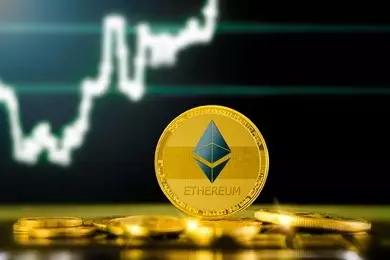Ethereum (ETH) recently underwent a significant software upgrade named Dencun, aimed at improving the cost-effectiveness of utilizing the network ecosystem. This upgrade specifically targets Layer 2 (L2) networks like Arbitrum, Polygon, and Coinbase’s Base, which are closely connected with Ethereum. With the implementation of Dencun, transaction costs on these networks have seen a substantial decrease, with fees dropping from dollars to cents or even fractions of a cent. This change is expected to have a profound impact on Ethereum’s end-user experience by reducing expenses significantly and fostering the development of new applications and services.
The Dencun upgrade introduces a new data storage system that moves away from the traditional method of storing Layer 2 data on Ethereum itself. By adopting a new “blobs” repository, data storage costs are reduced as information is only stored for about 18 days instead of indefinitely. One of the key benefits of this upgrade lies in its impact on decentralized exchanges (DEXs) and gas costs. Gas costs for popular Layer 2 networks such as Arbitrum, Optimism, and Coinbase’s Base are projected to see significant reductions. For instance, the expected gas cost savings translate into a reduction of Arbitrum’s swaps from $2.02 to $0.40, Optimism’s swaps from $1.42 to $0.28, and Coinbase’s Base swaps from $0.58 to $0.01, highlighting the importance of this upgrade.
The successful deployment of the Dencun upgrade on Ethereum’s mainnet has been met with praise from Tim Beiko, an Ethereum Foundation core developer. The complexity of the fork was highlighted, with it being the most complex since the Merge, and it tied for the most total EIPs in a fork with Byzantium. The involvement of multiple teams in the process and the smooth execution of the upgrade are seen as significant achievements. As this upgrade sets the stage for further developments, it is expected to drive increased demand for ETH and potentially trigger a renewed uptrend that could bridge the gap between current trading prices and its previous all-time high of $4,878.
The Dencun upgrade unlocks cost-saving opportunities for Layer 2 networks by addressing congestion concerns and freeing up additional space on the Ethereum network for transactions. While the upgrade enhances efficiency, it does come at the expense of no longer maintaining a complete record of all data indefinitely. However, as Layer 2 networks embrace this update, it is anticipated to accelerate adoption, increase usage, and improve accessibility within the Ethereum community and its underlying protocols. Despite the successful upgrade, ETH’s price has remained largely unaffected, consolidating below the $4,000 threshold.
The Dencun upgrade marks a significant milestone in improving the cost-effectiveness of utilizing Ethereum’s network ecosystem, particularly benefiting Layer 2 networks and decentralized exchanges. The successful implementation of this upgrade sets the stage for further advancements in the Ethereum ecosystem, driving increased demand for ETH and potentially leading to a renewed uptrend in its price. As the network continues to evolve and adapt to new technological innovations, the future looks promising for Ethereum and its community of users and developers.


Leave a Reply